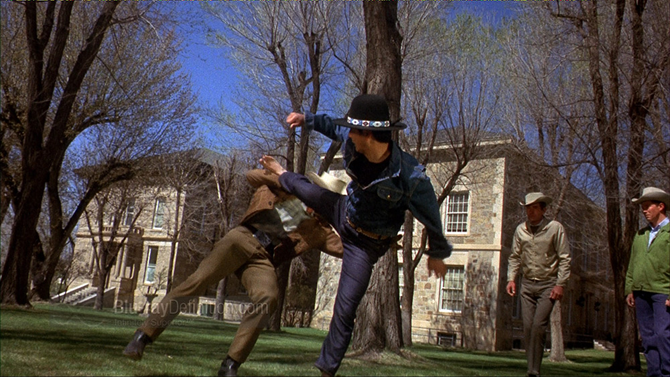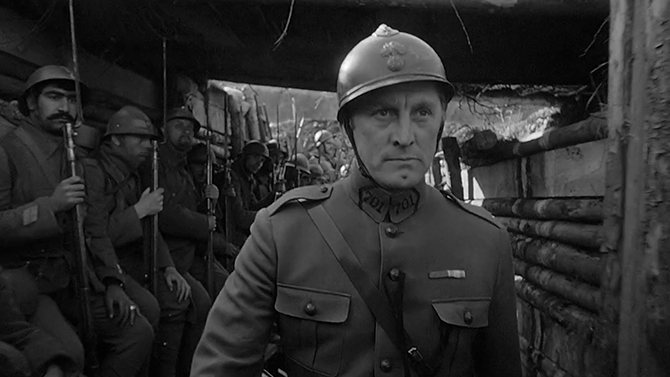
Safety First
Like a severe and utterly serious version of Stanley Kubrick’s 1964 satirical dark comedy Dr. Strangelove or: How I Learned to Stop Worrying and Love the Bomb, you would think that Fail Safe would have been the original release in theatres that was then later spoofed, yet that is not the case. Released approximately six months later in the same year, as you might imagine, it led to very poor returns at the box office – dare I say it (as the film deals with this subject matter)... it was a bomb! Despite that, over time, it has become a bonafide classic. Based upon Eugene Burdick’s 1962 novel of the same name and directed by Sidney Lumet (Dog Day Afternoon), he introduces us to our main players by way of little vignettes.
-

Billy Jack Finally Finds Peace
Billy JackJuly 31, 2014Hopefully this will be the last week for quite some time that I will have to start with the announcement of another actor’s death. Tom Laughlin, the co-writer, director and star of the four Billy Jack movies, passed away at the age of 82 last month. Though Billy Jack, the second film in the series, cannot be considered a ‘good’ movie by any means, it is still a B-movie cult classic that has some solid entertainment value.
-

You’re Alright With Caddyshack
CaddyshackApril 13, 2014I think it is finally safe to say that spring is in the air. For me, this time of year brings to mind two things in the realm of sports: the NHL playoffs and the beginning of the golf season. I was lucky enough to run into John Lu at a Montreal Canadiens game recently and we started to talk movies. Lu, who reports on all things sports in Montreal, Habs and beyond, for TSN, was quick to name a classic sports film – Caddyshack, as his favourite comedy of all-time. For him, it was the superb cast and their talents at improvising that placed this movie a notch above the rest.
-

The Tramp Finds his Voice
The Great DictatorMarch 13, 2014In 1939, it was known that Charlie Chaplin was making a new film.
-

Westerns, Eastwood Style
High Plains DrifterMarch 10, 2014It is hard to believe that Clint Eastwood has been directing movies for over four decades. His second directorial effort, the 1973 western High Plains Drifter, is now celebrating its 40th year.
-

War, What is it Good For?
Paths of GloryMarch 2, 2014Stanley Kubrick, one of the great directors of the 20th Century, was a unique artist who was able to experiment with many different genres throughout his four plus decades of work. From film noir to horror, Kubrick’s movies were varied so that no two were similar, other than perhaps in theme. Of his 13 motion pictures, only two were war based, with the 1987 Vietnam narrative Full Metal Jacket being one of his most iconic. Yet, I am going to talk about his earlier anti-war film, the 1957 classic Paths of Glory.
-

Cuckoo’s Nest a Classic Film
One Flew Over the Cuckoo's NestFebruary 23, 2014We are now less than one week away from the Academy Awards and I thought it would be a good time to visit one of the biggest Oscar winning movies of the 1970's – the classic 1975 motion picture One Flew Over the Cuckoo’s Nest – which took home five of the biggest prizes; namely, Best Picture (a young Michael Douglas won for producing the movie), Best Actor in a Leading Role, Best Actress in a Leading Role, Best Director and Best Adapted Screenplay.
